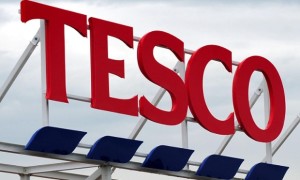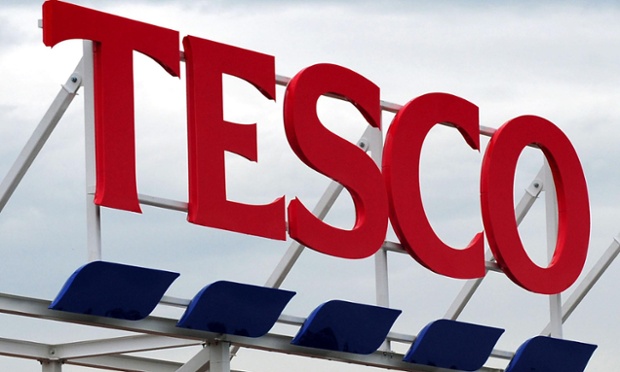A Real Test of Values at TESCO
The days of corporate scandals never seem to end.
 According to The Guardian, the world’s second-largest supermarket chain – Tesco PLC – has suspended four executives and launched an accounting investigation after admitting that its half-year profit was overstated by £250 million (approx. US $410 million). As of the end of day (Sept. 22, 2014), over £2 billion of value had been wiped away as the company shares plummeted.
According to The Guardian, the world’s second-largest supermarket chain – Tesco PLC – has suspended four executives and launched an accounting investigation after admitting that its half-year profit was overstated by £250 million (approx. US $410 million). As of the end of day (Sept. 22, 2014), over £2 billion of value had been wiped away as the company shares plummeted.
The investigation comes less than a month after the new chief executive, David Lewis, was brought in to turn the business around. Note the statement Lewis makes:
“We have uncovered a serious issue and have responded accordingly.”
Really???
Something smells rotten in the supermarket chain.
Core Purpose
In contrast to other companies that one would suspect as being shady, Tesco clearly defines their Core Purpose on their website.
Our Core Purpose is a clear and simple statement of what we do and what we stand for:
We make what matters better, together.
Now, based on the current scandal, consider the irony in the following statements made by Tesco in support of their Core Purpose.
Our Core Purpose needs to reflect how much society has changed in recent years – more scepticism about corporations, more desire to see business demonstrate it has a purpose beyond profit, a sense that large companies should be contributing more to tackling some of the big challenges. The world has changed from a culture of ‘more is better’ to ‘making what matters better’.
That’s why we’ve changed our Core Purpose – this profound shift in society must be reflected in the way we think and behave as a business. Today, our brand must be about more than simply function. It’s about the way we work, the values we live by, the legacy we leave. We can’t solve the world’s problems but we want Tesco to always do the right thing, to inspire and to earn trust and loyalty from all of our stakeholders.
Such statements about “skepticism about corporations” and “always do the right thing” make this scandal even that much harder to accept.
Then, to help put this Core Purpose into practice, Tesco highlights three values.
Three Values
Consider Tesco’s three core values.
1) No one tries harder for customers
- Understand customers
- Be first to meet their needs
- Act responsibly for our communities
2) We treat people how they want to be treated
- Work as a team
- Trust and respect each other
- Listen, support and say thank you
- Share knowledge and experience
3) We use our scale for good
- Creating new opportunities for millions of young people around the world
- Helping and encouraging our colleagues and customers to live healthier lives and through this helping to tackle the global obesity crisis
- Leading in reducing food waste globally
Act responsible… Trust and respect each other… Do actual behaviors match this commitment?
Lastly, consider Tesco’s supporting statement regarding these values:
Since we first introduced our Tesco Values more than a decade ago, they have become a vital part of our culture – and an essential underpinning of our growth and success. They ensure that every person at Tesco understands what is important – about how we work together as a team and how customers are at the centre of what we do. They are universal values, which have helped guide our people as Tesco has grown into new markets and new countries.
If these values were such an integral part of Tesco’s culture, how did this scandal come about in the first place?
What Happened?
Right now there are more questions than answers.
- Was the former CEO corrupt?
- Were the four suspended executives alone in their actions, or is there something deeper hidden within the Tesco culture that just finally showed up?
- Is there any real value to the Core Purpose and company values? Do they have any real teeth?
- How do you re-set the culture of an organization with more than 500,000 employees spanning 12 countries?
- How can Tesco’s core values be used to establish a solid foundation to move forward?
As the weeks and months ahead unfold, various answers will surface (along with accusations and speculations). But the real test will be to see if Tesco’s values are authentic and genuine. If they are, a few people will pay a serious price, and the company will rise up and carry on. But if the values never had any substance, then we might see another Enron, or WorldCom, or Nortel-like outcome, with the complete demise of a once mighty company.
Let’s hope Tesco’s values are real.
What’s your take on this scandal? Do you think Tesco’s values have substance?








